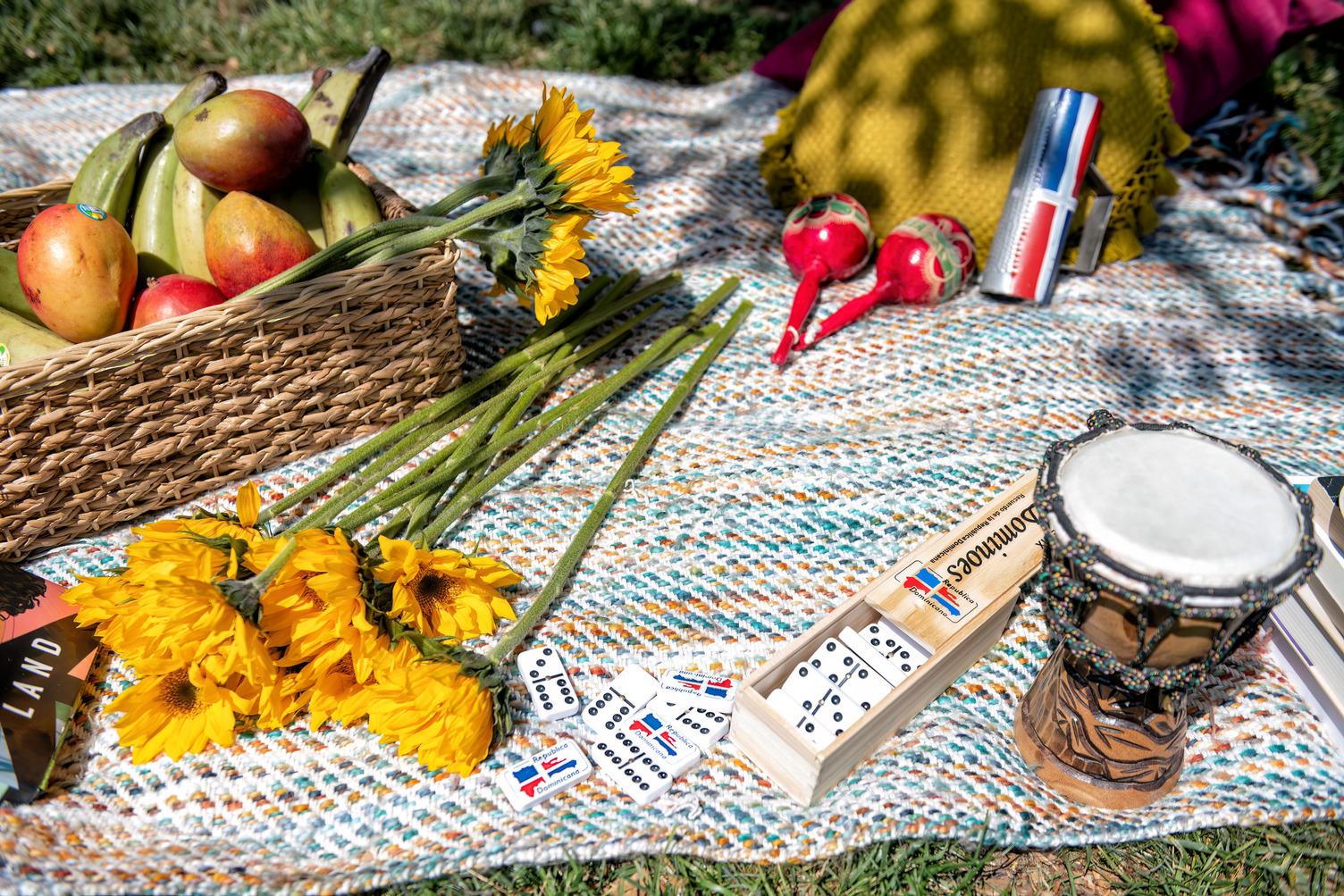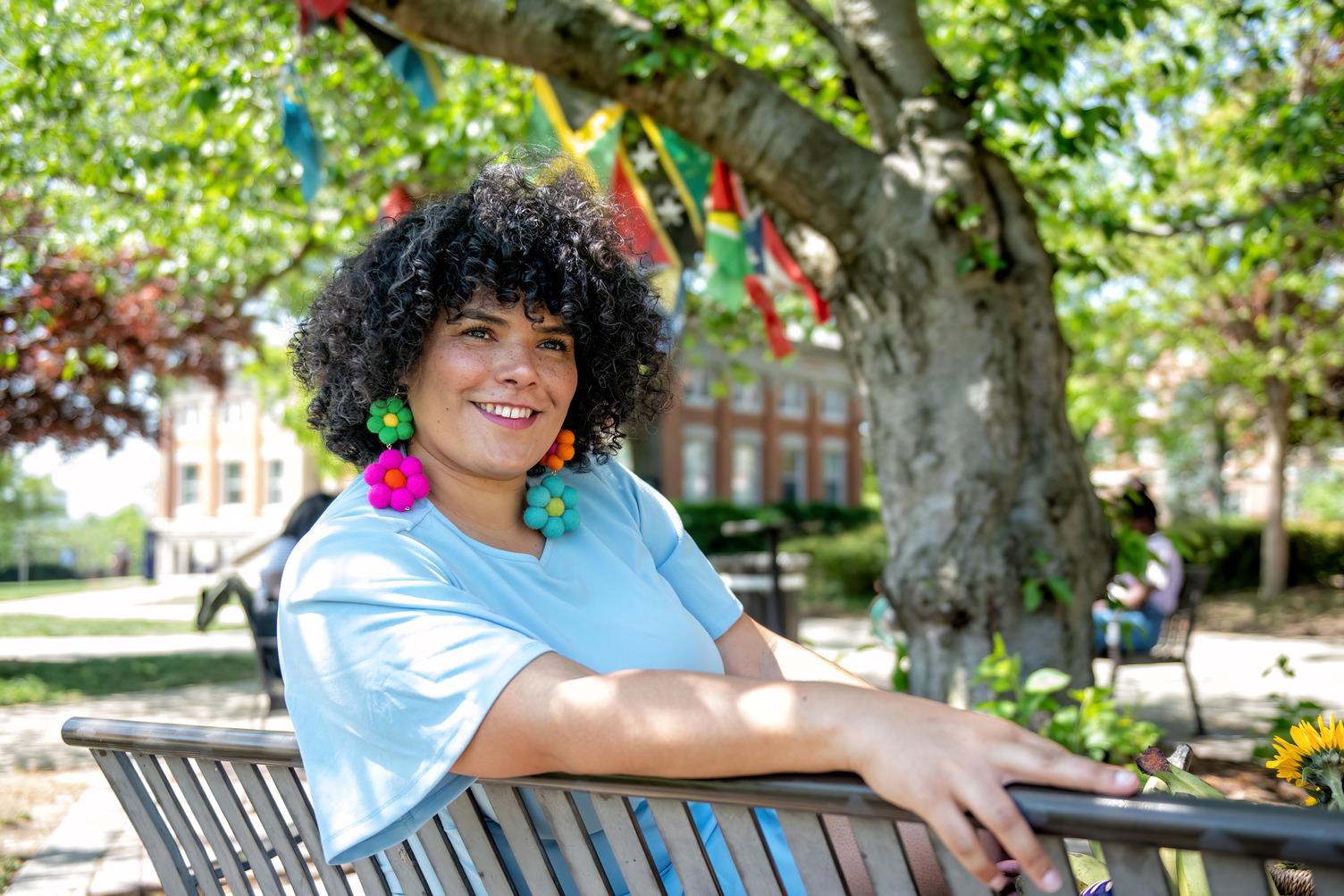As a third-generation Afro-Latina who grew up in New York City, Natalie Muñoz (PhD ’22) knows first-hand what it’s like to be a student caught between multiple worlds. “You’re constantly in conflict,” she says. “You’re not Latino enough if you don't speak Spanish, or you’re not American enough because people tell you to go back to where you came from. And then depending on who you’re talking to, you're not Black enough because you don’t understand Black American hip-hop or Black American cultural identity. So it’s a constant struggle to find belonging.”
Muñoz sought to shine the light on that struggle and how historically Black colleges and universities (HBCUs) can help Afro-Latine students work through it with her dissertation, “Soy de Aqui y Alla (I’m from Here and There): Exploring how HBCUs Shape Afro-Latine Students’ Ethnic/Racial Identity Development and Mental Health.”
“I think having a positive ethnic racial identity impacts your mental health and your ability to be successful in college and after college,” she says. “HBCUs have done a phenomenal job at empowering African Americans so I was curious to see if they're doing that for Afro-Latino students.”
You're not Black enough because you don’t understand Black American hip-hop or Black American cultural identity. So it’s a constant struggle to find belonging.”
Muñoz spoke with 17 students who self-identify as Afro-Latine and attend HBCUs to learn about their experiences. “A lot of students saw their HBCU as a safe haven, as a space that really helped them to excel in their positive racial identity,” she says.
For some it was a healing experience, particularly those who came from backgrounds with histories of colonization where their families may have grown up with ideologies that were anti-Black, she says.
“One grad student talked about how her mom tells her daily, ‘Why do you have your hair natural? Your hair depresses me.’ And so then when she comes to the HBCU, she feels relieved that she can be her natural self with her natural hair and find beauty in it.”

However, not all student experiences were positive. Some study participants said they had been told that they were not Black enough, Muñoz says. “They felt like they had to hide parts of their identity in order to assimilate more to the HBCU culture.”
Out of the 17 students interviewed, 16 said overall they felt a strong sense of belonging at their HBCU. One student said they regretted their HBCU experience. Students also had recommendations about how HBCUs can better serve the needs of their Afro-Latine students. One highlighted the desire for a campus therapist who understood the experiences of Afro-Latines and possibly identified as Afro-Latine themselves.
A lot of students saw their HBCU as a safe haven, as a space that really helped them to excel in their positive racial identity.”
Among the suggestions were to incorporate Afro-Latine history into academic curriculums to showcase the diversity of the Black diaspora. Research found that students wished they had access to and ability to find more courses that incorporate Afro-Latine history. Other suggestions were that HBCUs facilitate the creation of Afro-Latine student organizations. For example, Howard has a student organization called Changó!, which celebrates Afro-Latino and Hispanic culture.
Study participants also suggested more inclusive events that would teach others about their culture, such as holding a salsa night in the cafeteria or even selling Afro-Latine food, she says.
The results from Muñoz’ research are so important because they show that HBCUs have a unique opportunity to not only move the needle for social and economic mobility for Afro-Latine students but to confront a long history of anti-Blackness in Latin America and the Latine community in the United States, she says.
“The beauty of my research is it tells HBCUs that they have so much potential to really help students have a more positive ethnic racial identity,” says Muñoz, who was recently offered a job at Rutgers University where she will be teaching in its bachelor’s program for social work with a concentration on Latine populations. “And it’s small changes that they can make to create a more inclusive space so that students don't feel like they have to assimilate to a certain culture, but that they can be their authentic selves.”
Article ID: 1466




